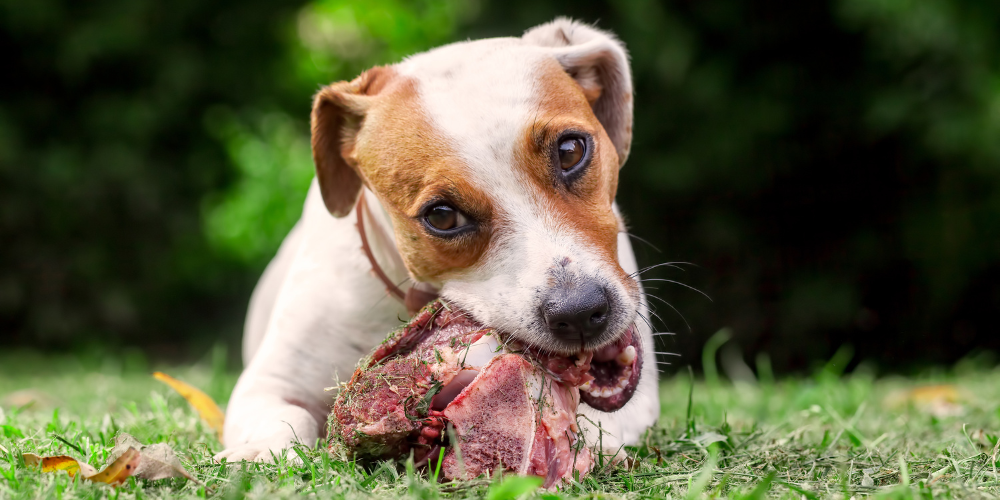
Are Bones Safe for Dogs? A Barkin' Good Question!
G'day pet lovers! If you're like me, with a furry mate or two by your side, you've probably tossed them a bone from time to time. After all, the classic image of a dog with a bone is as Aussie as Vegemite on toast. But have you ever paused to wonder, "Is this really safe for my dog?" Here at VetShopAustralia, we're passionate about ensuring our four-legged mates are in tip-top shape year-round. So, let’s dive into the bone of contention (pun intended) and set the record straight.
The Historical Chew
Dogs and bones share a history spanning millennia. Before the age of commercial dog food, bones were pivotal in a dog's diet, providing essential nutrients. Besides, gnawing on bones can also be a natural way to clean teeth and flex those jaw muscles. However, there are safer ways to ensure dental hygiene, like using dental products. But, remember, not all bones are cut from the same cloth. Let’s delve into the specifics.
Raw vs Cooked Bones
Raw Bones:
These are generally safer for dogs. They're softer and less likely to splinter. Common choices include beef rib bones, lamb neck bones, and poultry bones. Nevertheless, it's paramount to supervise your dog during their chew time.
Cooked Bones:
These, especially the ones from your Sunday roast, are a strict no-no. They can splinter with ease and result in injuries. Such fragments may lead to digestive obstructions or even tears.
Size Matters: Picking the Right Bone for Your Pooch
It’s all about getting the right fit. Just as you wouldn’t give a Chihuahua a surfboard suited for a Great Dane, the bone size must be apt for your dog. Larger breeds swallowing small bones can lead to potential hazards, while tiny breeds grappling with a gigantic bone might not be the best sight.
Bone Benefits: Dental Health & Mental Stimulation
Chewing isn't merely about fun. It offers mental stimulation and the abrasive action helps reduce tartar build-up, ensuring healthier gums and teeth. For some, dental sprays are a more practical option. Think of it as nature's toothbrush!
Beware of Bone No-Nos
Certain bones are riskier than others:
- Poultry Bones: Prone to splintering, especially when cooked.
- Pork Bones: They might crack or shatter, risking tooth damage or sharp fragments ingestion.
- Large Weight-Bearing Bones: Their hardness might lead to dental fractures.
Safety First: Bone-Giving Tips
- Always Supervise: Your dog should never be left alone with a bone.
- Ditch Old Bones: Get rid of bones that dry out or become too minuscule.
- Know Your Dog: Some are aggressive chewers and need special attention.


Alternatives to Bones: A Dog's Delight Without the Risks
While bones have traditionally been a dog’s go-to, there are several safer yet equally delightful alternatives. Let’s explore!
Dental Chews: More Than Just a Treat
Dental chews serve a dual purpose - they’re both yummy and beneficial for your dog's oral health. Here’s a bit about our top selections:
- Pedigree DentaStix: Unique X-shaped and known to curtail tartar and plaque.
- Greenies Dental Treats: A fusion of taste and health, made from natural ingredients.
- Evolution: Tailored for those with an insatiable taste, these chews are irresistible and beneficial.
- Fido's Superflex: Fun-shaped and perfect for gums and teeth.
- Oravet Dental Chews: These do double duty - cleaning and protecting with a bacterial barrier.
Dental Toys: Playtime with a Purpose
Dental toys are not just about play. They offer dual advantages: entertainment and dental cleaning. Here's more:
- KONG Dental Stick: Perfect for chew enthusiasts and fetch lovers.
- KONG Squeezz Dental Ball Dog Toy: Combines the joy of a squeaker with unique cleaning grooves.
- Flossy Chews 3-Knot Tug Toy: Ideal for tug-of-war games while simultaneously flossing.
- KONG Dental with Rope: A blend of robust rubber and rope ensuring double the fun and health benefits. Don't forget to complement with toothbrushes and toothpastes for complete care.
In Summary
To bone or not to bone? While they can have advantages, the key is making informed choices, be it bones or their alternatives. VetShopAustralia is all about ensuring our furry friends get the best, be it riding waves or enjoying a treat. Our priority? Keeping tails wagging and ensuring pet well-being.
